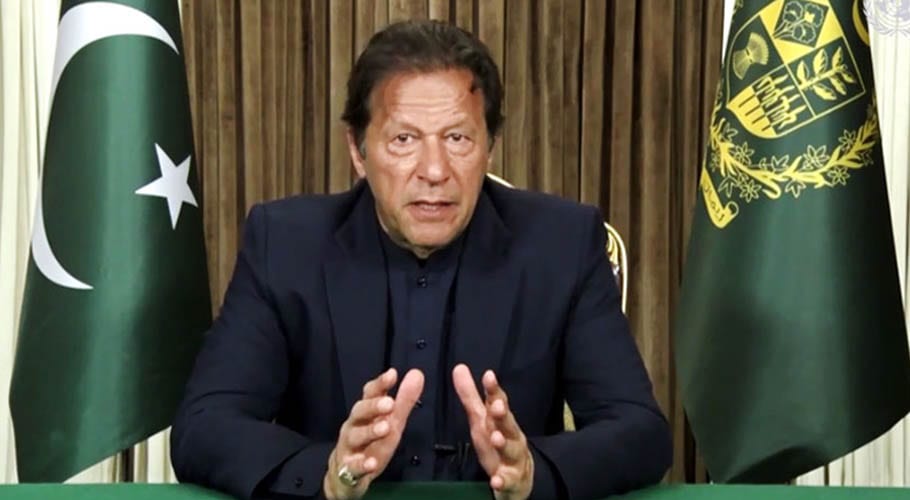ISLAMABAD: Prime Minister Imran Khan has proposed a ten-point agenda to world leaders to avert economic collapse due to the COVID-19 pandemic and called for debt suspension, drawing rights of $500 billion, and return of stolen assets stashed in rich countries.
He was virtually addressing the UN General Assembly’s two-day special session on the response to the deadly coronavirus pandemic and forge a united path forward to better recovery including access to a vaccine.
PM Imran Khan said developing countries are facing a dilemma of how to stimulate the economy and yet at the same time reduce the budget deficit. He said the only way to have the fiscal space to maintain and revive growth is through access to additional liquidity.
Underlining the need for reforming the international financial architecture, he called for building an inclusive and equitable debt management mechanism, constructing a democratic and SDG-focused trading system, and installing a fair international tax regime.
The prime minister also proposed concessional financing to lower-income countries through multilateral development banks; provision of loans at lower costs, mobilizing $100 billion per year for climate action in developing countries, and halting of illicit financial outflows from developing to rich countries.
The prime minister said the COVID-19 pandemic has infected nearly 65 million people and killed close to 1.5 million. He expressed hope that whenever the vaccine is available, it must be offered to everyone.
He said the government provided a relief package of around $8 billion to support the poor and to keep the economy afloat during the pandemic. He proposed a ten-point agenda for urgent action which called for:
- Debt suspension till the end of the pandemic for low income and most stressed countries.
- Canceling debt of least developed countries.
- Restructuring of the public sector debt of other developing countries under an agreed inclusive multilateral framework.
- Allocation of special drawing rights of $500 billion.
- Expanded concessional financing to lower-income countries through multilateral development banks.
- Creation of a new ‘liquidity and sustainability facility’ to provide short term loans at lower costs.
- Fulfillment of the 0.7 % official development assistance commitments.
- Mobilising the required $1.5 trillion annual investment in sustainable infrastructure.
- Achievement of the agreed target of mobilising $100 billion per year for climate action in developing countries.
- Immediate action to stop the massive illicit financial outflows from developing countries to rich countries, offshore tax havens, and the immediate return of their assets stolen by corrupt politicians and criminals back to these countries.
The prime minister said the pandemic caused immense human suffering and created the deepest global economic contraction since the great depression of the 1930s. He pointed out that nearly 100 million people in developing countries would fall back into extreme poverty while on the other hand rich countries had injected $13 trillion as fiscal stimulus to revive their economies.
He said developing countries do not have the resources to afford such a massive economic stimulus and are struggling to find even a fraction of the $ 2-3 trillion required to recover from the pandemic. He mentioned Pakistan’s successful policy of ‘smart lockdowns’ and said these efforts were aimed at ensuring that not they save people from the virus, but also prevent them from dying from hunger.
The prime minister said that so far their strategy has worked, but now the country was confronted with a far more aggressive second wave of the virus. He said the government is facing now the challenge of maintaining and reviving economic growth as well as dealing with an increasing number of cases.
He referred to International Monetary Fund (IMF) chief’s advice to the countries to spend as much as it was required to stimulate growth and said that like many developing countries, Pakistan were committed under their IMF program to reduce the budget deficit.



































